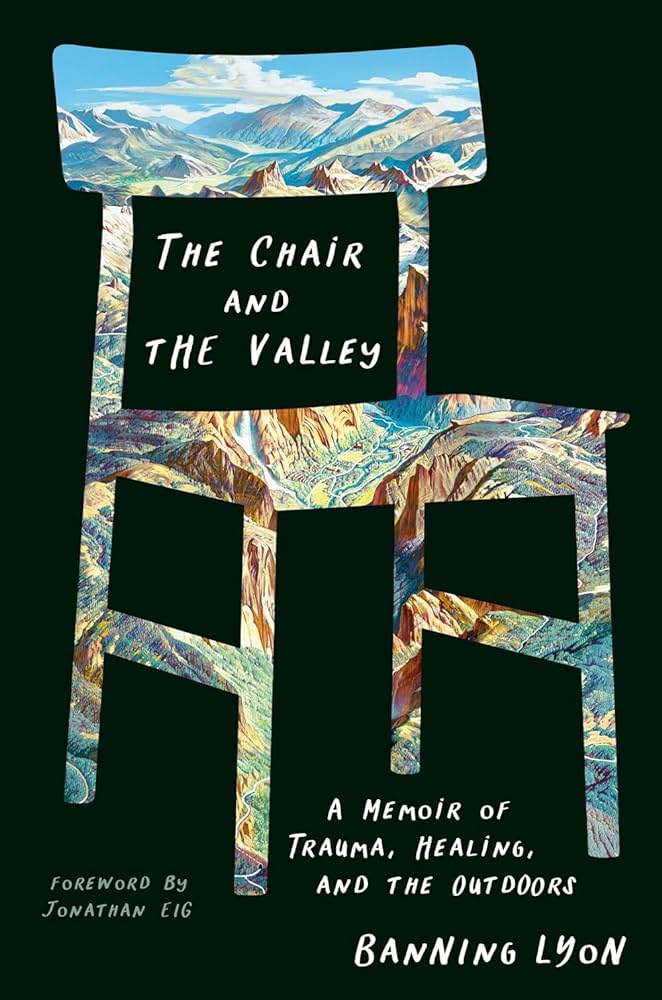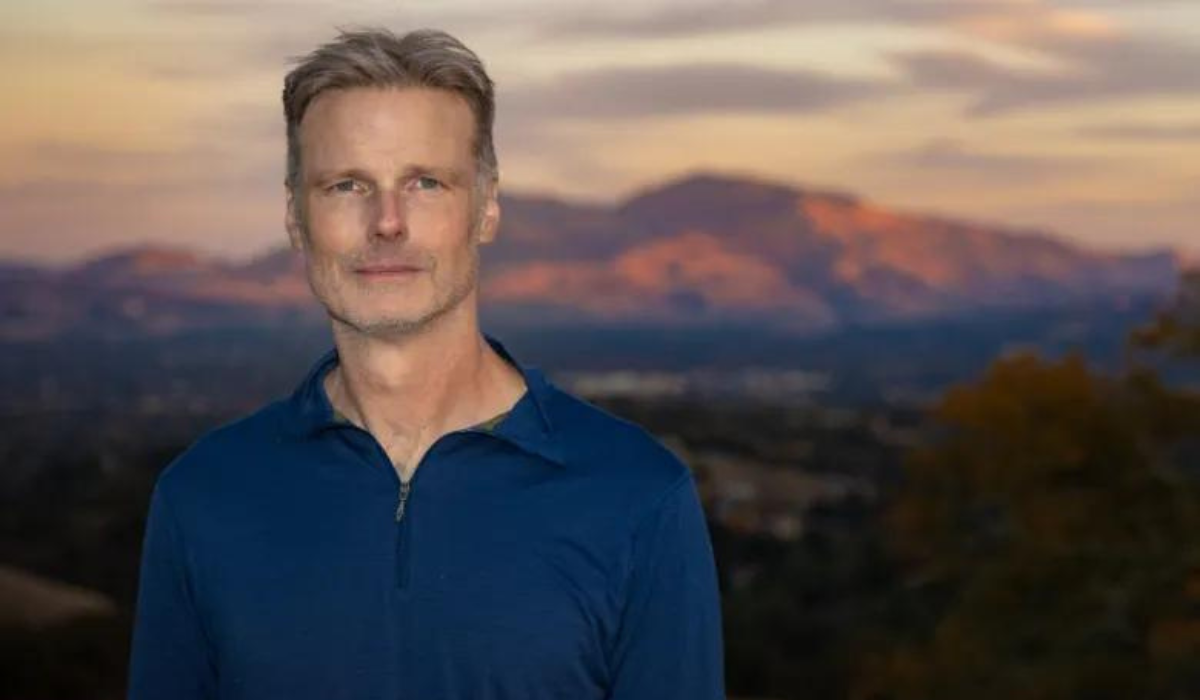Open Field Author Banning Lyon Was Sent to a Psychiatric Hospital That Nearly Ruined His Life. Here Are His 5 Tips for Helping a Kid Who’s Struggling
Thirteen years ago, when I first became a backpacking guide in Yosemite National Park, my boss taught me what would become one of the most important lessons of my life. “People don’t get blisters because they have a rock in their boot,” she said. “They get blisters because they’re ashamed.”
What I didn’t know at the time, but would soon learn, is that most people are ashamed of taking care of themselves.
Time and time again, I’ve had clients apologize for everything from being dehydrated to suffering from a severe illness or injury. From childhood, most of us are taught not to inconvenience other people, even if that means neglecting our most basic needs. I can’t count the number of times I’ve patched someone’s blistered feet while they apologized to the rest of the group for “slowing everyone down.”
As a result, my boss began modeling self-care for the clients. She’d stop in the first mile or two of a hike, take off one of her boots, and pretend to dump a small pebble out of it. By the time she’d finished, at least two or three other people were fixing whatever issue they had with their boots or socks—issues they wouldn’t have addressed if she hadn’t stopped the group in the first place.
Modeling self-care has implications far beyond being a good backpacking guide. I believe it’s also fundamental to being a good parent.
My parents divorced when I was eleven. By the time I was thirteen, they had almost no interest in me or my life. They both were so consumed with forgetting their broken marriage that they forgot about me as well. They didn’t model self-care or compassion. They modeled depression, disconnection, and resentment. I never learned how to communicate or build a strong relationship. Instead, I learned how to navigate disasters and survive.
When I was fifteen, my parents signed me into a psychiatric hospital after my school counselor told them I was suicidal because I’d given away my skateboard. Six years after my discharge, the corporation that operated the hospital pleaded guilty to paying kickbacks and bribes for patients. It’s still shocking that my parents knew so little about me that they relied on the conclusions of a questionable therapist who made decisions that would nearly ruin my life. The resulting trauma has taken me years to understand—a journey I write about in my forthcoming memoir, The Chair and the Valley. Yet that journey has also cast a light on what my parents could have done differently, and I believe those lessons are ones that can help all parents and caregivers who strive to support our kids—especially those who are struggling.
Lesson No. 1: Listen. Not only did my parents never listen to me, they also never listened to each other. By the time they had divorced, I was passing messages for them. I have no memory of them ever having a thoughtful discussion or actively listening to each other. I spent most of my teen years wishing they would simply sit down and listen to me.
Sure, advice is nice when it’s well informed, but sometimes listening is better than offering a solution. Whenever my wife comes home from work and tells me about something challenging, I always ask, “Should I just listen, or would you like some advice?” Of course, many of you might be saying, “But my kids don’t come to me for advice or comfort.” Then go to them and ask how they are and what they need. Even if they don’t share much, at least they’ll know you care enough to ask. Bonus points: If they’re having a difficult time with a friendship, relationship, or something else, don’t offer platitudes or silver linings. Listen to what they’re going through with an open mind and heart. Validate their feelings. Telling them everything will be better someday is unfair and untrue. Did everything always turn out better for you?
Lesson No. 2: Learn to apologize. Adults make mistakes. Teenagers are keenly aware of this fact. Refusing to apologize isn’t going to convince your kid that you’re right. It’s only going to make them resentful. I was fourteen when my mom first abandoned me. She never apologized for it. She didn’t even acknowledge it. She simply told me it had never happened.
It’s been nearly forty years since my mom left me at the airport. If she called today to apologize, I would probably break down in tears.
Apologizing to your child not only acknowledges that you hurt their feelings and that their feelings matter, but you’re also modeling compassion and courage. Is there something you wish you had apologized to your child for? Why didn’t you? Can you do so now in an authentic way?
Lesson No. 3: Do the work. When you miss your kids, tell them. Offer to take them out for a meal or a movie. Check-ins and dates are important in all relationships. Just because you have a child doesn’t mean you automatically have a relationship with them. Show them you care enough to work for it. Sure, your kids might say no, but at least they’ll know you want to spend time with them. That way, when the time comes when they truly need someone, whether they’re in crisis or not, they’ll know you love them unconditionally.
It takes time and effort to prove you’ll be a safe space for your kids. Don’t expect them to come to you just because you’ve told them you’ll always be there for them. Prove it to them.
Lesson No. 4: Being a teenager is not a “phase.” I was sixteen when I began playing the drums. My mom rolled her eyes and dismissed it as “just a phase.” I’m fifty-two now and I still play the drums. Dismissing your child’s music or hobbies or relationships will only make your kid self-conscious and resentful. Even worse, they’ll eventually begin to withdraw from you.
There’s a strange notion that teenagers live in a separate realm from adults, that the things they love are a temporary whim or passing phase. We see adulthood as something that magically begins in our twenties. However, our lives are a process—a progression of events and experiences built upon a series of yesterdays. Dismissing any part of it as a “phase” is hurtful and unfair. Our thirties are a phase. Our forties are a phase. There are countless ways to subdivide our lives. Why do we treat teens less seriously than adults?
Don’t make the mistake of dismissing your teenager’s hobbies or passions as a phase. Not only will you alienate your child, but you’ll miss out on all the things your kid can teach you.
Lesson No. 5: Model true self-care. Don’t try to sell your kids on the idea that “being strong” means concealing their feelings. It’s okay to be vulnerable. I can’t recall how many times my mom came home from work before microwaving a frozen dinner and slinking off to her room after saying she was okay. She wasn’t okay. “Being strong” wrecked my mom. My mom never went to therapy, yet she forced me to see a therapist and then had me locked in a psychiatric hospital. Therapy isn’t just an investment in our own happiness, it’s an investment in the happiness of those around us, especially our kids.
Being a good parent requires taking care of ourselves. If one of my clients has an emergency in the backcountry, I have to be ready to take care of them instead of scrambling to tend to my own needs because I’ve neglected myself. Modeling genuine self-care requires each of us to reflect on what we need. Is it leaving work at the office when it’s possible? Getting some exercise? Therapy? Or simply putting away our phones when we’re with the people that we love?
Parents don’t fail their kids because they don’t love them. They fail their kids because, just like my clients, they’ve been taught that having compassion for ourselves is shameful and selfish. Let’s not teach our kids the same thing. Take a moment to stop and take off your boots and be kind to yourself. Remember, not only are you modeling self-care, but you’ll be fully present for your kids when they really need you.

Banning Lyon is the author of The Chair and the Valley, an upcoming memoir from The Open Field. His writing has also been featured in the New York Times and the Washington Post. He currently lives in the San Francisco Bay Area and works as a backpacking guide and outdoor educator.




